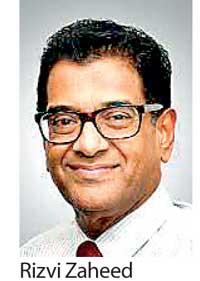23 Nov 2021 - {{hitsCtrl.values.hits}}
The government’s organic fertiliser pivot hasn’t entirely lifted the country out of subsidy culture, in which the agricultural community is entrenched with for decades but it provides the necessary stop-gap measure to ensure undisrupted farming and short-term food security, according to an expert in commercial agriculture.
 The budget presented for 2022 allocated a mammoth Rs.35 billion to provide start-up working capital to produce solid and liquid organic fertilisers, organic pesticides and for finding means for removing weeds without using chemical weedicides.
The budget presented for 2022 allocated a mammoth Rs.35 billion to provide start-up working capital to produce solid and liquid organic fertilisers, organic pesticides and for finding means for removing weeds without using chemical weedicides.
The allocation is nearly the amount the government annually allocates to provide subsidised chemical fertiliser, which the farmers mostly overuse and waste.
“The Rs.35 billion allocated for the production of organic fertiliser and pesticides is quite significant and almost close to the amount allocated for the fertiliser subsidy,” said Sri Lanka Agripreneurs’ Forum Chairman Rizvi Zaheed.
He said this financial assistance is necessary to facilitate the transition in the interim towards
organic farming.
Sri Lanka’s overnight transition to organic fertiliser from chemical fertiliser and agro-chemicals early this year, amid a global pandemic and soaring food prices, has been met with widespread push back from the farmers growing variety of crops, including food staples, export and perennial crops.
“Those are some of the stop-gap elements of the budget because they have to do some damage control because whatever said and done, whilst the organic fertiliser and organic pesticide move is a good one; the suddenness of it is something that causes a shock to the sector,” Zaheed told a post-budget forum organised by the Institute of Certified Management Accountants of Sri Lanka, last week.
“So, it is only now that is being realised that there can be a lead time to develop organic pesticide and organic fertiliser is going to take time. So, you need to give some support to the farmers and this is again a subsidy. So, there is no choice. Unless you give the subsidy to support, there is a great chance that there will be a food shortage,” he added while looking at the merits of the fund allocation from the budget.
Zaheed, who is also a Director at Vidullanka PLC and the former Managing Director at Hayleys Agriculture Holdings Limited, earlier called the government to lift the ban on chemical fertiliser and other agrochemicals by 50 percent in the first year and to phase out the full transition through the next three to five years.
Speaking last week, he said while Budget 2022 has covered nearly all the themes under broader agriculture sector in the country, such as green economy, organic fertiliser pivot and technology use in agriculture, lack of specificity in the proposals made him disappointed a bit.
“On the downside, there is no specificity of what type of proposals are implemented. Whether this is going to contribute towards adequate food security, income of farmers and also on the impact on the national economy in terms of adequate food production, is yet to be seen. So, we have to see how these budget allocations are going to be allocated,” he said. While commending the government for its “pragmatic” approach for allocating moneys for various sectors in the broader agricultural sector, he called the government to engage the private sector agencies for consultation on the proposals made and on their implementation.
17 Nov 2024 31 minute ago
17 Nov 2024 48 minute ago
17 Nov 2024 4 hours ago
17 Nov 2024 4 hours ago
17 Nov 2024 4 hours ago